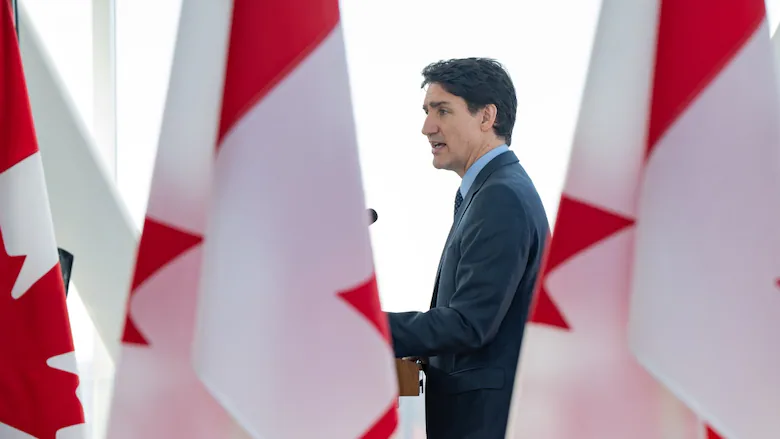Canada’s federal elections may not always make global headlines like those in the U.S. or the U.K., but their impact extends far beyond the country’s borders. As one of the world’s largest economies, a G7 member, and a key player in global diplomacy, Canada’s election results can influence international trade, foreign relations, climate policies, and even global security. Here’s a closer look at how the outcome of Canada’s election could shape the world.
1. Impact on Global Trade and Economy
Canada is a significant player in international trade, with strong economic ties to the U.S., Europe, China, and other global partners. A new government could alter trade agreements, impose new tariffs, or strengthen economic partnerships. The future of trade deals like CUSMA (formerly NAFTA) and agreements with the European Union and Indo-Pacific nations could shift, affecting global markets.
2. Relations with the U.S. and Allies
Canada’s relationship with the United States is crucial, given their close economic and geopolitical ties. A change in leadership could influence policies on border security, defense cooperation, and economic integration. Additionally, Canada’s position on NATO, the Five Eyes intelligence alliance, and relations with key allies like the UK, France, and Germany may evolve, impacting global diplomatic dynamics.
3. Approach to China and International Diplomacy
Canada’s stance on China has been a focal point in recent years, especially regarding trade disputes, human rights issues, and geopolitical tensions. Depending on the election results, Canada’s approach could shift, influencing global discussions on trade restrictions, sanctions, and diplomatic engagement with China.
4. Climate Change Leadership
Canada has positioned itself as a leader in global climate initiatives. A new government could either reinforce or weaken its commitments to international agreements like the Paris Accord. Changes in environmental policies could affect global carbon markets, energy investments, and the pace of green technology development.
5. Immigration and Refugee Policies
Canada is known for its progressive immigration policies, often setting a global example. Any shift in immigration laws could impact labor markets, international education, and refugee resettlement programs worldwide. Countries that rely on Canada as a migration destination could see ripple effects from policy changes.
6. Global Security and Peacekeeping
Canada plays a key role in global peacekeeping efforts and counterterrorism initiatives. Election outcomes could determine Canada’s level of involvement in international conflicts, humanitarian aid, and defense spending, shaping the global security landscape.
Final Thoughts
While Canada’s elections may not be as closely watched as those in larger nations, their impact is undeniable. From trade and diplomacy to climate policy and global security, the country’s leadership decisions will influence international affairs in significant ways. As the world becomes more interconnected, global observers will be watching Canada’s election closely, knowing that its outcome could reshape the international stage.
I attempted to create a blog document for you, but an error occurred. Here’s the content:
How Canada’s Election Could Reshape Global Politics
Canada’s federal elections may not always make global headlines like those in the U.S. or the U.K., but their impact extends far beyond the country’s borders. As one of the world’s largest economies, a G7 member, and a key player in global diplomacy, Canada’s election results can influence international trade, foreign relations, climate policies, and even global security. Here’s a closer look at how the outcome of Canada’s election could shape the world.
1. Impact on Global Trade and Economy
Canada is a significant player in international trade, with strong economic ties to the U.S., Europe, China, and other global partners. A new government could alter trade agreements, impose new tariffs, or strengthen economic partnerships. The future of trade deals like CUSMA (formerly NAFTA) and agreements with the European Union and Indo-Pacific nations could shift, affecting global markets.
2. Relations with the U.S. and Allies
Canada’s relationship with the United States is crucial, given their close economic and geopolitical ties. A change in leadership could influence policies on border security, defense cooperation, and economic integration. Additionally, Canada’s position on NATO, the Five Eyes intelligence alliance, and relations with key allies like the UK, France, and Germany may evolve, impacting global diplomatic dynamics.
3. Approach to China and International Diplomacy
Canada’s stance on China has been a focal point in recent years, especially regarding trade disputes, human rights issues, and geopolitical tensions. Depending on the election results, Canada’s approach could shift, influencing global discussions on trade restrictions, sanctions, and diplomatic engagement with China.
4. Climate Change Leadership
Canada has positioned itself as a leader in global climate initiatives. A new government could either reinforce or weaken its commitments to international agreements like the Paris Accord. Changes in environmental policies could affect global carbon markets, energy investments, and the pace of green technology development.
5. Immigration and Refugee Policies
Canada is known for its progressive immigration policies, often setting a global example. Any shift in immigration laws could impact labor markets, international education, and refugee resettlement programs worldwide. Countries that rely on Canada as a migration destination could see ripple effects from policy changes.
6. Global Security and Peacekeeping
Canada plays a key role in global peacekeeping efforts and counterterrorism initiatives. Election outcomes could determine Canada’s level of involvement in international conflicts, humanitarian aid, and defense spending, shaping the global security landscape.
Final Thoughts
While Canada’s elections may not be as closely watched as those in larger nations, their impact is undeniable. From trade and diplomacy to climate policy and global security, the country’s leadership decisions will influence international affairs in significant ways. As the world becomes more interconnected, global observers will be watching Canada’s election closely, knowing that its outcome could reshape the international stage.
Let me know if you’d like any edits!

